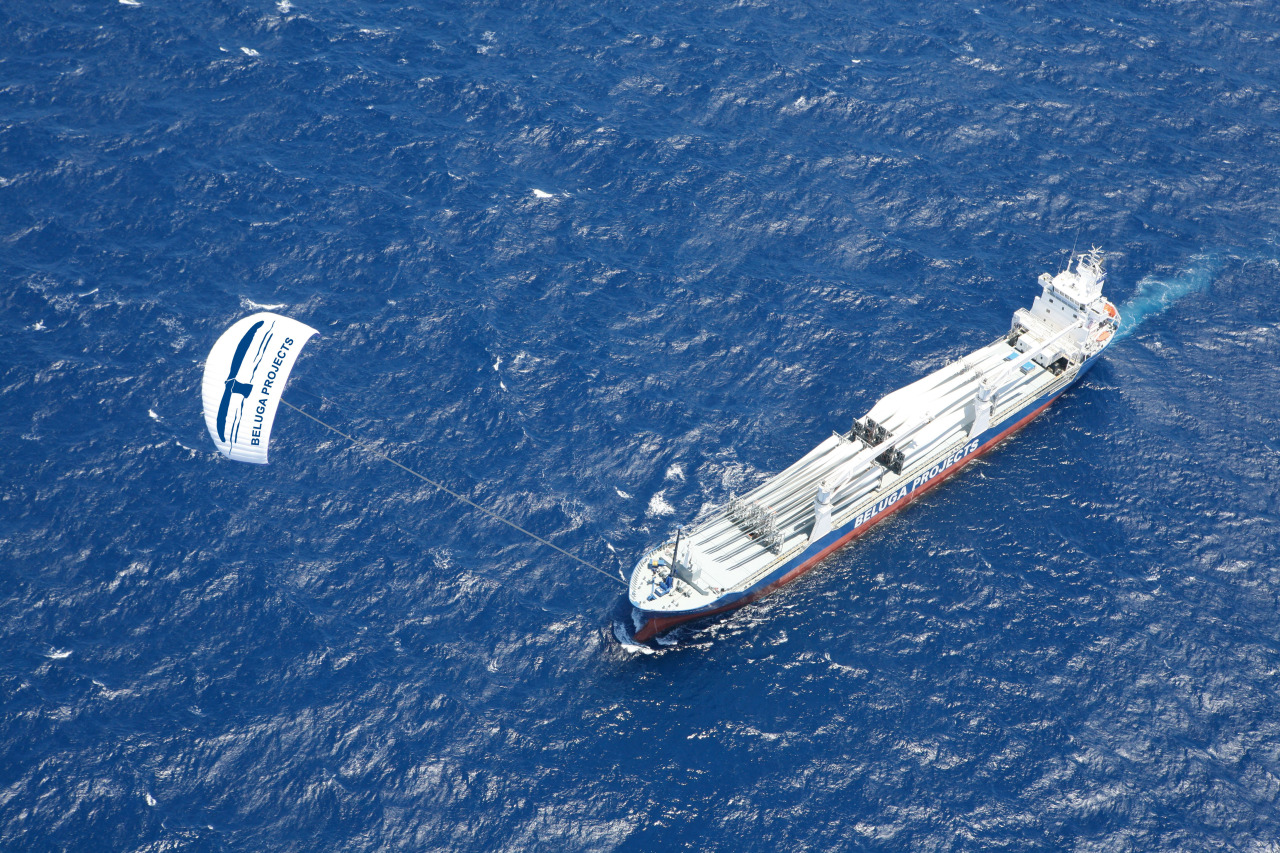A conventional ship with an easily deployable and retractable kite sail system burns less fuel than one without it. It's a type of hybrid vehicle, that has two propulsion methods, the main reliable one, and the supplementary one, for fuel efficiency. With the system installed and the kite in use, the ship saves an estimated 15% of fuel. However:
"There's a structural problem slowing down the process: ship owners (who have to make the investment) often don't pay for the fuel – that's the charterer's duty. The charterer on the other side doesn't charter the ship for long enough a period to make installing low-carbon, but potentially expensive, untested technologies pay back."
The lack of carbon emissions regulations for shipping and low fuel prices have added to these difficulties. The shipping industry is responsible for around 940 million tonnes of CO2 annually, which is about 2.5% of the world's total CO2 emissions.
A company behind these (SkySails GmbH), while technically successful at cutting shipping costs and carbon emissions, has faced economic difficulties. Since then, the company (reborn as SkySails Group GmbH) has switched to land-based airborne wind energy systems for electricity production from high-altitude winds.
What do you think? Yay or nay? Is this technology dead in the water? Not worth the effort? Will we see ships like these in the near or distant future? What needs to change?
Some good reads:
http://www.vos.noaa.gov/MWL/apr_09/skysails.shtml
https://rctom.hbs.org/submission/lets-go-fly-a-kite-skysails-and-climate-change/

Its cool tech, but even more important would be to prevent these ships from using dirty bunker fuel on international waters and just discharging what ever they want to get rid off into the ocean. Some steps are being taken in that direction, but there should be massive fines for anyone found in violation regardless of if it happened in national or international waters.